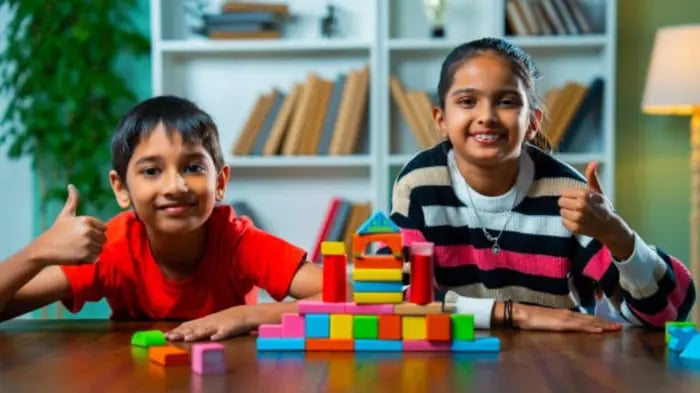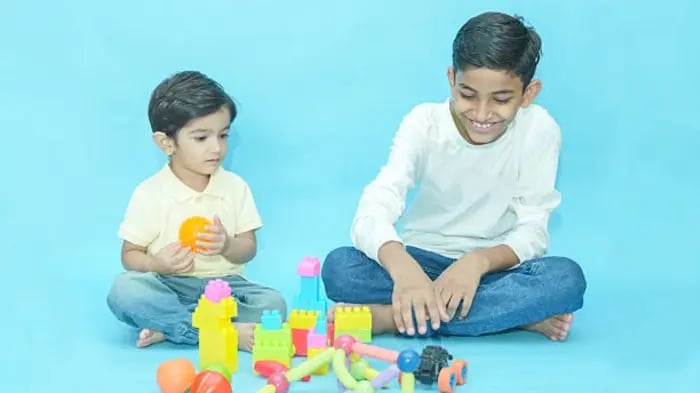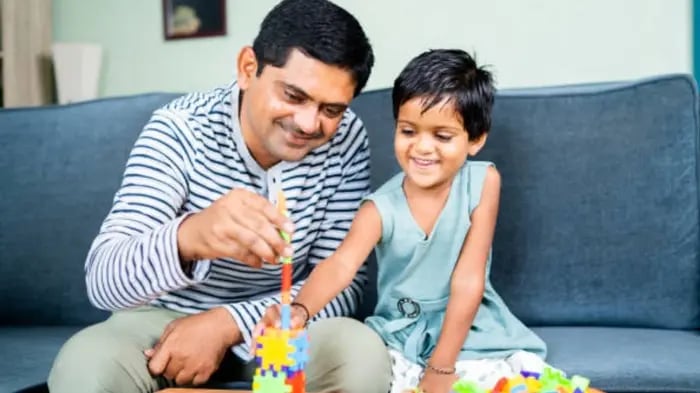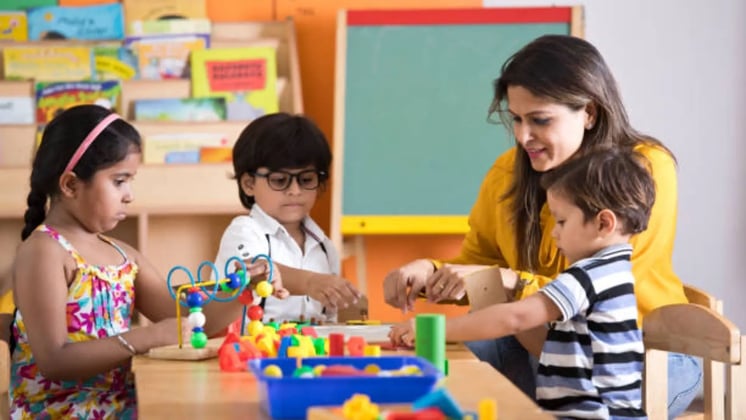- Encourages Communication
- Teaches Patience and Turn-Taking
- Promotes Cooperation
- Builds Emotional Intelligence
- Strengthens Problem-Solving and Decision-Making
- Encourages Healthy Competition
- Builds Trust and Strengthens Bonds
Introduction
Indoor games have always been a classroom of life lessons. For kids, every round of a board game, puzzle or group activity teaches cooperation, patience and the joy of sharing success. On days when outdoor play isn’t possible, these indoor moments become a powerful way to build social skills that will stick with kids long after playtime.

Through indoor games, kids learn to communicate, take turns and resolve conflicts, all essential for teamwork. Games that require planning, discussion or collective decision making teach them to listen to others and respect different opinions. Even simple activities like building blocks together or team quizzes encourage collaboration and empathy. These experiences gradually teach kids that success feels better when shared.
The comfort of home also allows shy or introverted kids to open up more easily. They build confidence through small wins and friendly interactions and strengthen bonds with siblings, friends or parents. Every shared laugh, rule and gentle competition helps their emotional growth and social awareness.
Indoor games build connection, character and cooperation. They remind kids that teamwork is about growing, learning and enjoying the journey together.
7 Indoor Games That Help Kids Build Social Skills and Teamwork

Indoor games shape important life skills in a fun and relaxed way. While children may see games as playtime, these activities quietly teach them how to communicate, cooperate, and connect with others. Whether it’s solving a puzzle, playing cards, or building together, indoor games help kids understand teamwork, patience, and the art of sharing space and ideas.
Here are seven ways indoor games can help your child develop social skills and teamwork while enjoying every moment of play.
Encourages Communication
Indoor games give children opportunities to express their thoughts, explain strategies, and listen to others. According to UNICEF, whether they’re deciding who takes the next turn or discussing the rules, they learn how to communicate effectively. This back-and-forth exchange builds confidence and helps children develop clear speech, polite language, and the ability to express themselves respectfully, all essential social skills that prepare them for group activities in school and beyond.
Teaches Patience and Turn-Taking
In a world where everything feels instant, indoor games remind children that good things take time. Waiting for a turn in a board game or patiently observing others’ moves encourages discipline and empathy. Research conducted by UNICEF, kids learn to value fairness and understand that everyone gets their moment to play. This simple practice strengthens self-regulation and reduces impulsive behavior, a skill that helps them thrive in group settings.
Promotes Cooperation
Many indoor games require teamwork, such as building a block tower, solving a mystery game, or playing charades. Through these experiences, children learn to share responsibilities, divide tasks, and appreciate each other’s strengths. According to a study published in Philos Trans R Soc Lond B Biol Sci. 2009, cooperation becomes second nature as they realize that success often depends on supporting one another rather than competing alone. These lessons in unity build a strong foundation for group learning and collaboration later in life.
Builds Emotional Intelligence
Playing with others exposes children to different emotions, joy, frustration, surprise, and even disappointment. As per a study published in Psychosom Med. 2012, indoor games teach them how to manage these feelings in a healthy way. They learn empathy by observing how others react and kindness by offering encouragement or comfort. Over time, this emotional understanding helps them build deeper connections and navigate relationships with care and sensitivity.
Strengthens Problem-Solving and Decision-Making
Strategy-based indoor games such as chess, memory cards, or building challenges help children think critically and make thoughtful decisions. When they plan a move or solve a tricky situation as a team, they learn how to weigh options and consider others’ perspectives. According to the Centre for Good Governance (CGG), these activities nurture analytical thinking and collective problem-solving, skills that go hand-in-hand with teamwork and leadership.
Encourages Healthy Competition
Competition is a natural part of growth, but indoor games help children experience it in a healthy and balanced way. Winning teaches confidence, while losing helps them handle disappointment gracefully. According to UNICEF, games create an environment where children learn to celebrate effort, not just outcomes. This attitude builds sportsmanship and teaches them how to appreciate others’ achievements while continuing to give their best.
Builds Trust and Strengthens Bonds
Indoor games bring families and friends closer together. Whether it’s parents joining in for a round of cards or siblings teaming up for a quiz, shared experiences strengthen emotional connections. Research published in Healthcare (Basel). 2023, shows that kids learn to trust others, celebrate teamwork, and enjoy collective achievements. These simple yet joyful moments become lasting memories that shape their ability to connect with people positively.
Conclusion

Indoor games are powerful tools for emotional growth and social learning. Through every move, laugh, and challenge, children learn how to communicate, cooperate, and understand one another better. These skills extend far beyond the living room, helping them form friendships, work in groups, and navigate the world with empathy and confidence. By encouraging playful teamwork at home, you give your child not just happy memories but life lessons that will stay with them forever.
Her love for storytelling began with reading her grandfather’s speeches, where Tarishi saw the power of words in creating lasting memories. Combining her passions for food and writing, she has turned her life into a fulfilling path of sharing stories that celebrate flavours and how food brings communities together.
The views expressed are that of the expert alone.
The information provided in this content is for informational purposes only and should not be considered a substitute for professional medical advice, diagnosis, or treatment. Always seek the advice of your physician or another qualified healthcare provider before making any significant changes to your diet, exercise, or medication routines. This is a sponsored article.
References
https://pmc.ncbi.nlm.nih.gov/articles/PMC9914289/
https://www.unicef.org/india/stories/games-support-your-childs-development
https://www.cgg.gov.in/wp-content/uploads/2017/07/Creativity.pdf
https://pmc.ncbi.nlm.nih.gov/articles/PMC2863117/
https://pmc.ncbi.nlm.nih.gov/articles/PMC2781880/
https://www.unicef.org/india/its-right-play
https://www.unicef.org/parenting/child-care/games-child-development
















